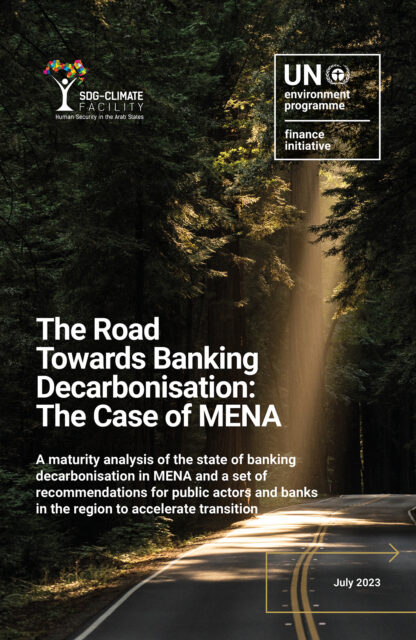The Middle East and North African (MENA) region is one of the world’s most vulnerable areas to climate change, which is already having a tangible effect on its societies and natural systems. However, MENA is also at a unique competitive advantage to lead in the carbon transition thanks to its unique mix of physical characteristics, economic output, and potential capacity in new zero-carbon areas of the economy. For the region to fully realise the significant benefits associated with leading the low-carbon transition, a systemic change is required where all public and private actors work collaboratively towards the common goal.
This report discusses the state of banking decarbonisation in the MENA region, looking at the maturity of the policy and regulatory environment on net-zero banking as well as how the banking sector has responded so far. The report includes a series of conceptual frameworks which outline the different areas in which public actors and banks need to take action to accelerate transition towards a net-zero economy as well as a set of recommendations in this regard.
Given their key role in international climate negotiations, Egypt and the United Arab Emirates are under focus in the report, but the recommendations apply to the other countries in the region, and the conceptual frameworks and tools introduced are relevant for policymakers and banks regardless of the region in which they operate.
Click here to watch the recording of our webinar diving into the report’s findings and recommendations.



